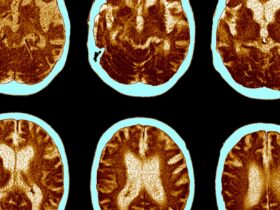Happiness and health have always been the pursuit of a fulfilling life, but did you know that they are closely intertwined? While it’s not a revelation that happy people tend to be healthier, the extent of this connection and the underlying science behind it might surprise you. In this article, we will delve into the fascinating relationship between happiness and health, as explained by science.
The Science of Happiness
What Is Happiness?
Happiness is a complex emotion that involves feelings of joy, contentment, and satisfaction. It’s not a constant state but rather a dynamic and subjective experience that varies from person to person.
The Brain's Role
Research in neuroscience has shown that happiness is not just a fleeting feeling; it has a biological basis. When we experience happiness, our brain releases “feel-good” chemicals like dopamine, serotonin, and endorphins. These neurotransmitters play a crucial role in our overall well-being.
Positive Psychology
Positive psychology is a field dedicated to understanding happiness and well-being. It explores the factors that contribute to a fulfilling life, such as gratitude, resilience, and positive relationships.

The Surprising Health Benefits of Happiness
Stronger Immune System
Happiness has a direct impact on our immune system. Studies have shown that happier individuals tend to have stronger immune responses, making them more resilient to illnesses.
Lower Stress Levels
Chronic stress is known to be detrimental to health, increasing the risk of various diseases. Happier people often have lower stress levels, which can lead to better cardiovascular health and reduced inflammation.
Longer Life
Numerous studies have linked happiness to longevity. One landmark study found that nuns who expressed more positive emotions in their autobiographies tended to live longer lives.
Better Mental Health
Unsurprisingly, happiness is closely related to mental health. Happy individuals are less likely to experience depression and anxiety. Positive emotions act as a buffer against the challenges of life.
Improved Heart Health
Happiness may also benefit your heart. Research suggests that positive emotions can lead to lower blood pressure and a reduced risk of heart disease.

Cultivating Happiness for Better Health
Gratitude Practice
One way to boost happiness is by practicing gratitude. Regularly reflecting on the things you’re thankful for can improve your mood and overall well-being.
Foster Positive Relationships
Strong social connections are a significant source of happiness. Invest time in building and maintaining meaningful relationships with friends and family.
Pursue Your Passions
Engaging in activities you love can bring you joy and satisfaction. Whether it’s a hobby, a sport, or a creative pursuit, make time for what makes you happy.
Mindfulness Meditation
Mindfulness meditation can help you stay present and appreciate the small moments in life. It’s a powerful tool for reducing stress and increasing happiness.

Conclusion
Science has illuminated the remarkable connection between happiness and health. As you pursue happiness in your life, remember that it’s not a selfish endeavor—it’s an investment in your well-being. By cultivating happiness through positive psychology techniques, you can enjoy a stronger immune system, lower stress levels, a longer life, improved mental health, and a healthier heart. So, embrace happiness as a key ingredient in your journey toward a healthier, more fulfilling life.






